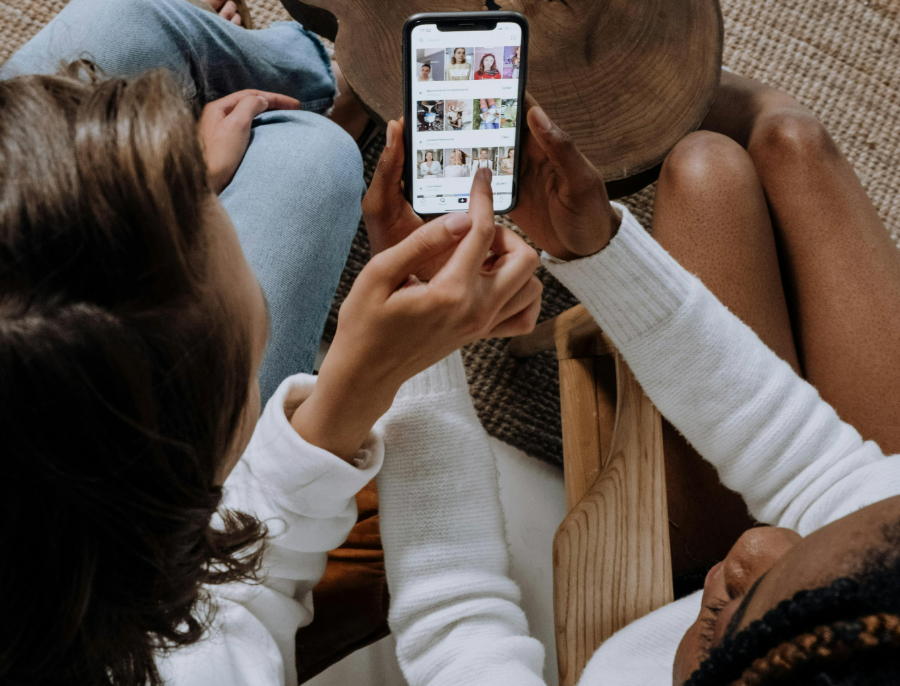Benny Hart and Lindsey Metselaar on the Anti-Dating Advice Everyone Should Agree On

When dating strategist Benny Hart joined Lindsey Metselaar on We Met At Acme, she was fairly certain they wouldn’t agree on much. “So many of you DM’d me his videos and were like, ‘Get this guy on the podcast—you won’t agree on anything,’” she said in the intro. But “unfortunately,” she joked, they actually found some common ground.
Metselaar takes a “men should lead, play your cards close to the chest” approach to dating, while Hart encourages women to clearly communicate what they want. So what did they actually agree on?
Benny Hart and Lindsey Metselaar’s Universal Dating Advice
There are too many “stages” in dating right now
Hart and Metselaar disagree on when you should tell someone what you’re looking for in a relationship, when you should move in with a partner, and how quickly you should start dating again after a breakup. But there are a couple ideas where they’re totally in sync.
Hart is currently in what he calls the “beginning stages” of something that’s not quite a relationship yet. While he’s being exclusive with his new paramour, he admits, “I don’t use that terminology. I actually can’t stand it.”
Metselaar agrees, adding, “I think being exclusive is a cop-out.”
As Hart explains, “The number one reason I don’t like that conversation is because people are already too confused about the dating scene. Then you add another layer of complexity with all these definitions and phases.”
He goes on to say that the term doesn’t mean much: “It seems to be a safeguard for when I feel like having an out, or if I happen to meet somebody.”
That doesn’t mean they’re against labels altogether. “I see it going from dating somebody to relationship,” says Hart. “I don’t like the dating, exclusive, relationship.”
Today’s path to commitment feels more complicated than ever: the dreaded “talking stage,” situationships, “exclusively dating,” then “boyfriend/girlfriend,” (or girlfriend/girlfriend, or boyfriend/boyfriend, or gender non-conforming significant other, whatever feels right to you!), then maybe even “partner” status before eventually, perhaps, marriage. According to both experts, all these steps don’t actually clarify or solidify anything—they just make everyone more confused.
Stop worshipping people (and wanting people to worship you)
“We can’t put men on a pedestal, ladies,” says Metselaar. “That’s why we date multiple people and give more than one favorite a chance at a time. If you’re on Hinge and you have one guy out of the bunch that you think is cool, he seems too good to be true, and he asks you out, then you might not feel like you still need to give other people a chance, but you 100 percent do.”
“I don’t think men should ‘pedestalize’ women either,” says Hart. He points out that a lot of the dating content that’s supposedly aimed at empowering women actually encourages women to hold out for guys who will worship them. In reality, however, “They typically don’t like the guys that over-pedestal them. They typically like the guys who actually have a life and are focused on a purpose that’s bigger than them. When you meet guys who are not fully focused on you and you start disqualifying them, I think you’re doing yourself a big disservice.”
“I will be the first one to say that girls are lying,” says Metselaar. “They don’t want a guy who’s like cringe-ily obsessed with them.” She does add a caveat though: “I think that a man should put you on a pedestal. He just shouldn’t make it so obvious to you. My husband put me on a pedestal when we first started dating, but he was good at making it seem like he didn’t.”
Hart sees the same pattern with men: “As much as guys will tell you, ‘Wow, I want her to be about me,’” the opposite is true in reality. “They want a girl that’s busy too. When she’s all about you, it’s like, ‘Get a life.’”
You probably shouldn’t even be reading this article right now
Perhaps the biggest piece of advice that Metselaar and Hart agree on is a rather contradictory one: Don’t spend too much time obsessing over dating advice. When Metselaar asked Hart, “Why do you think women should listen to your dating advice?” he had a hilarious reply.
“I don’t think they should, and that’s the truth. I don’t think they should listen to any dating advice. And I always tell ’em, ‘Get the f*** offline—don’t listen to any dating advice. If you’re online and you see mine, fantastic. I’m not asking anybody to listen to my advice. If it doesn’t make the most sense to you, that’s okay,” he continues. “If it resonates, great.”
Hart believes the biggest problem with dating today is that people are way too influenced by what they see online, using dating content as a way to feel less alone or like someone gets them. “If I’m part of that problem, you should get offline fully,” he says.
Metselaar agrees that dating content has an undue influence on our brains and behavior.
When people listen to (or read) too much dating advice, “They’re not in tune with their feelings. They’re sometimes more focused on ‘If we sleep well together on our first night, like, I didn’t have a good night’s sleep, does that mean I didn’t like him?’”
Too much dating content can also make you obsess over “little nuances” that you wouldn’t have cared about before. Metselaar gave this example: “Something that pisses one woman off doesn’t necessarily piss me off. So if a woman is online talking about, ‘My husband, he’s not allowed to follow Instagram models,’ but my husband follows Instagram models, and I don’t care, all of a sudden I’m like, ‘Should I care?’”
The only one who truly knows your priorities, likes, and dislikes is you. Dating content can be fun—even informative sometimes—but it’s more entertainment than education.
Hart left the podcast with this final thought: “Stop looking online for dating content, including mine.” He calls the overproliferation of dating content a “throughline of problematic pieces that are always ingrained in how people see dating now. In order to have more of an optimistic frame, focus on being a good version of yourself and attracting good people.”
For more great dating advice, listen to We Met At Acme.




















Leave a Reply